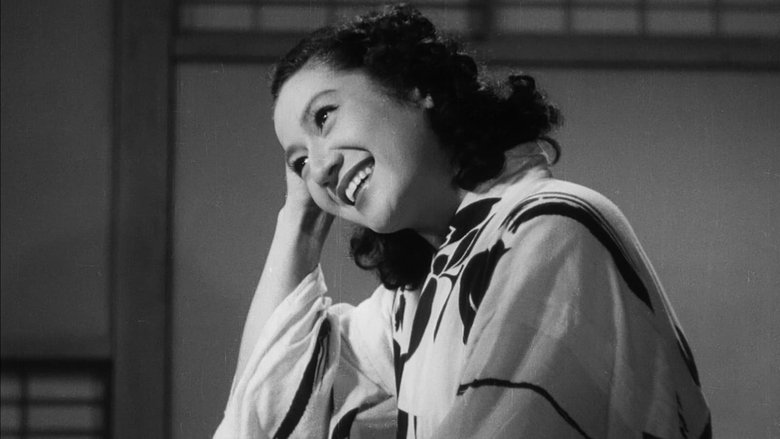← Back to Reviews

in

Late Spring, 1949
A woman in her late 20s, Noriko (Setsuko Hara) lives with her widowed father, Shukichi (Chishu Ryu). Having recently recovered from an illness, Noriko and her father begin to get pressure from friends and family members to marry her off. But Noriko wishes to remain with her father, and the question of her marriage (and his possible remarriage) begins to come between them.
There is something so . . . easy about Ozu's films. The way that they capture the rhythms and sensations of the lives of real people. This might be a weird connection to make, but it almost makes me think of Jane Austen or George Eliot and the skill of portraying moments of transition in the way that they are both big and small at once. There are no big, grand gestures here. Just conversations over tea, a trip to the theater, and a walk along the water. But it is in these small moments that big decisions are made.
The way that the film is shot is absolutely gorgeous. Every frame is bursting with life and the vibrancy of the characters. Noriko and Shukichi are incredibly likable characters and the film doesn't rush any of their encounters with each other or the other characters.
Something that I struggled with during the film relates simply to a cultural difference across both time and society. The conflict that Noriko is presented with is never seen as anything other than a binary choice: stay with her father or get married. That's it. Noriko is a bright, charismatic woman, and yet the only future the film or the people around her can imagine is that of a dutiful wife. Nowhere was this more depressing than in the "pep talk" Shukichi gives her to convince her to get married. Sure, she might be miserable for a few years. Yes, he used to find his own wife crying alone in the kitchen, but if you really work at it, you can forge a strong relationship. The emotional core of the film is about Shukichi unselfishly pushing Noriko out of the nest, even if it means his own loneliness. And I never doubted that he cared for her and wanted what was best for her. But yeesh!! To me it all falls a little flat when what Noriko is being pushed into doesn't sound at all appealing. Especially in the final act, I just kept thinking that Noriko deserved a lot more.
I can definitely see why this film is so beloved, and Ozu's skill as a director is on full display. But some of the dated, sexist aspects of the story kept me from fully engaging with the narrative arc.

Late Spring, 1949
A woman in her late 20s, Noriko (Setsuko Hara) lives with her widowed father, Shukichi (Chishu Ryu). Having recently recovered from an illness, Noriko and her father begin to get pressure from friends and family members to marry her off. But Noriko wishes to remain with her father, and the question of her marriage (and his possible remarriage) begins to come between them.
There is something so . . . easy about Ozu's films. The way that they capture the rhythms and sensations of the lives of real people. This might be a weird connection to make, but it almost makes me think of Jane Austen or George Eliot and the skill of portraying moments of transition in the way that they are both big and small at once. There are no big, grand gestures here. Just conversations over tea, a trip to the theater, and a walk along the water. But it is in these small moments that big decisions are made.
The way that the film is shot is absolutely gorgeous. Every frame is bursting with life and the vibrancy of the characters. Noriko and Shukichi are incredibly likable characters and the film doesn't rush any of their encounters with each other or the other characters.
Something that I struggled with during the film relates simply to a cultural difference across both time and society. The conflict that Noriko is presented with is never seen as anything other than a binary choice: stay with her father or get married. That's it. Noriko is a bright, charismatic woman, and yet the only future the film or the people around her can imagine is that of a dutiful wife. Nowhere was this more depressing than in the "pep talk" Shukichi gives her to convince her to get married. Sure, she might be miserable for a few years. Yes, he used to find his own wife crying alone in the kitchen, but if you really work at it, you can forge a strong relationship. The emotional core of the film is about Shukichi unselfishly pushing Noriko out of the nest, even if it means his own loneliness. And I never doubted that he cared for her and wanted what was best for her. But yeesh!! To me it all falls a little flat when what Noriko is being pushed into doesn't sound at all appealing. Especially in the final act, I just kept thinking that Noriko deserved a lot more.
I can definitely see why this film is so beloved, and Ozu's skill as a director is on full display. But some of the dated, sexist aspects of the story kept me from fully engaging with the narrative arc.
